Fond farewell for former High Court judge who fathered Native Title with Mabo decision
Former High Court judge Gerard Brennan was best remembered at his requiem mass as the man who wrote the lead judgment on the Mabo decision.
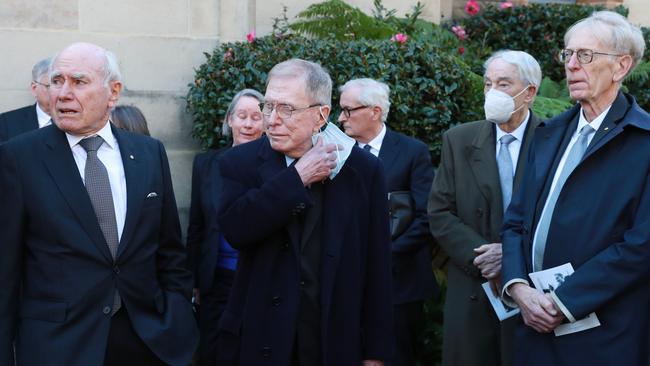
Years ago, when Gerard Brennan was working in the front garden of his home in a quiet Canberra cul-de-sac one weekend, he was approached by a little girl. “This is the judge’s house, isn’t it?” she asked. When Brennan confirmed it was, the girl inquired further: “Are you the judge’s gardener?”
“Yes,” Brennan said. He was the gardener, as Brennan’s son Frank recalled to a packed St Mary’s Church in North Sydney on Friday, and he was content to be described this way.
But this humble gardener, for whom a commonwealth car would arrive for pick-up each workday, was also chief justice of the High Court.
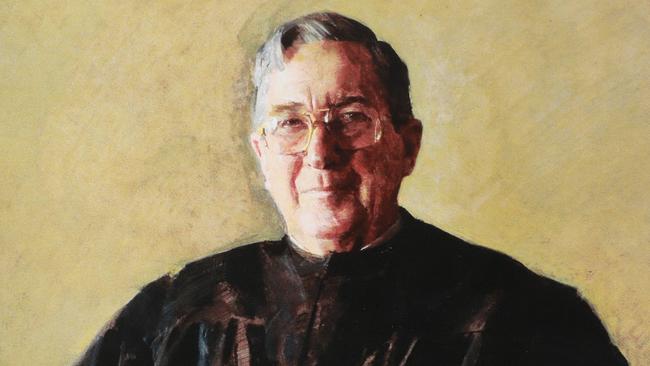
Brennan, who died on June 1, aged 94, was remembered most famously during Friday’s requiem mass at St Mary’s as the man who wrote the lead judgment on the Mabo decision.
It was this judgment which “confronted the myth of terra nullius” – as Pat Dodson expressed it to the congregation – by recognising the rights of Aboriginal and Torres Strait Islanders to the ownership of their lands.
A year later, in 1993, it led to the passage in parliament of the Native Title Act. Brennan died just two days short of the Mabo judgment’s 30th anniversary.
Jesuit priest and lawyer Frank Brennan, Gerard’s eldest son, speaking by videolink after contracting Covid, said his father did not rise to lead the highest court by being in the right place at the right time, causing offence to none, or being “unfailingly courteous and humble”. He was “ambitious for the higher gifts” with a relentless ethic of work and duty and an Irish sense of humour.
“Gerard Brennan brought true justice to the nation without crying out or shouting aloud … the law, the family, and the nation were Dad’s abiding concerns as a person of resolute Christian faith in the Catholic tradition,” Father Brennan told the congregation.
Friday’s farewell attracted an impressive battalion of Brennan’s former High Court colleagues: Sir William Deane, Michael McHugh, Kenneth Hayne, Michael Kirby, Mary Gaudron and Ian Callinan.
Other eminent jurists included serving Chief Justice of the NSW Supreme Court Andrew Bell, his bench colleague Robert Beech-Jones, and former solicitor-general Justin Gleeson, also Brennan’s son-in-law as his daughter Bernadette’s husband.
Former prime minister John Howard, who knew Brennan well, was also among the mourners.
Delivering the eulogy, Sir William said he knew Brennan as a colleague and friend for 45 years. Brennan, he said, brought to the court a deep knowledge of Indigneous peoples, having previously acted as senior counsel for the Northern Lands Council. “His Mabo judgment effectively became the judgment of the full court and became a major step towards reconciliation,” he said.
The “citadel” of Brennan’s life, Sir William said, was his family and his wife of 65 years, Patricia, who died in 2019. She’d put her career as a doctor in second place to be her husband’s counsellor and partner.
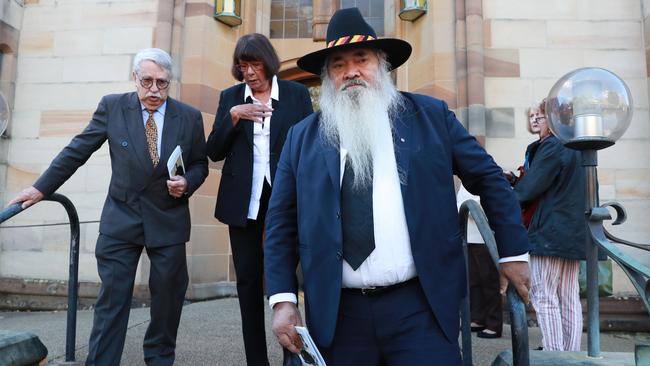
Senator Dodson, now the Albanese government’s special envoy for reconciliation and the implementation of the Uluru Statement from the Heart, started proceedings with a welcome to country and a stirring tribute in which he praised Brennan’s Mabo judgment as “a gift and a challenge to the nation” and “this old man’s greatest achievement”.
Well-known didgeridoo player William Barton played one of his own compositions, his rich rhythmical, complex sounds echoing through the church.
Later, Senator Dodson joined others in placing items that represented Brennan’s life on his coffin – in his case gum leaves, while Ms Gaudron placed the written Mabo judgment.


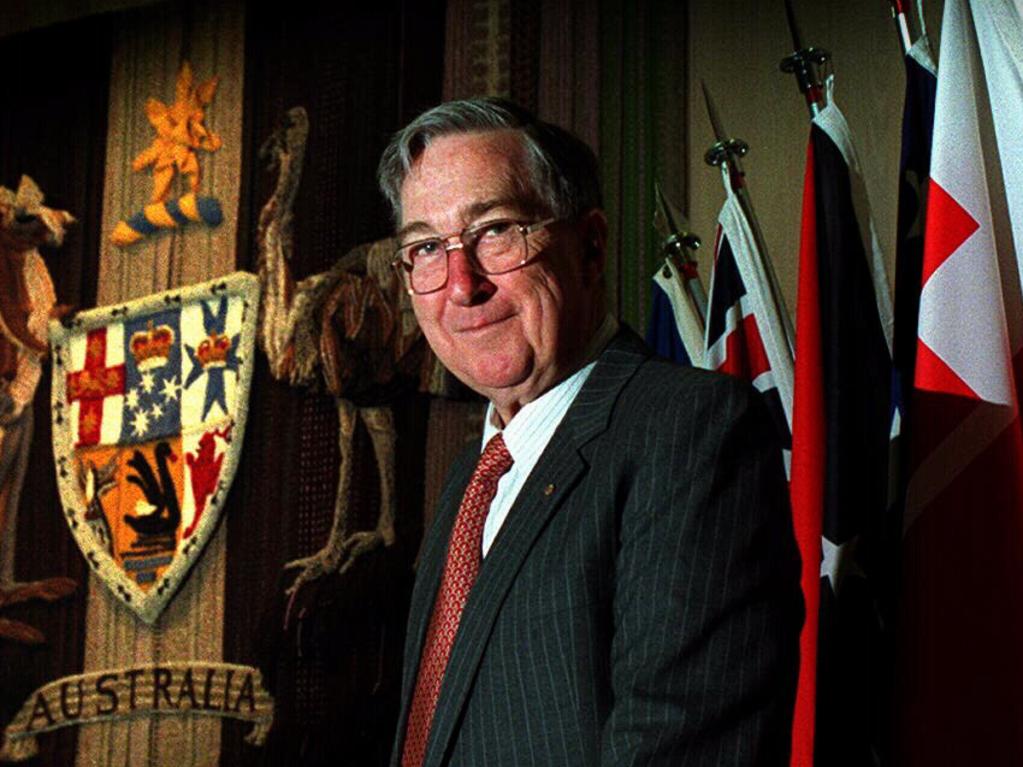

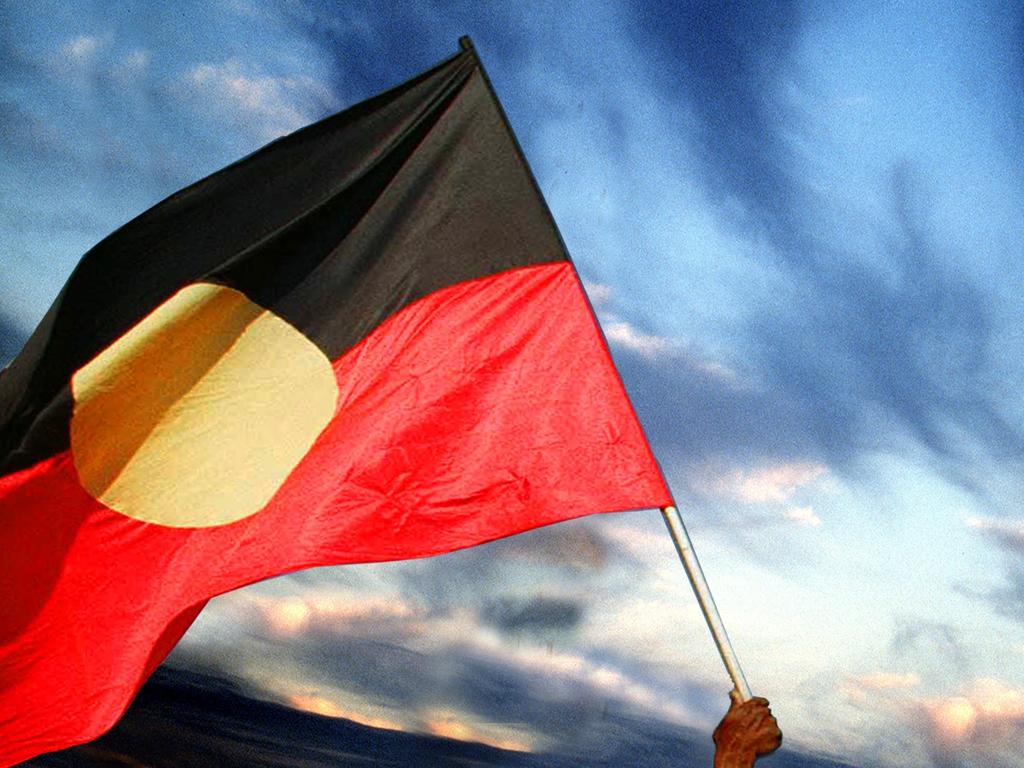


To join the conversation, please log in. Don't have an account? Register
Join the conversation, you are commenting as Logout